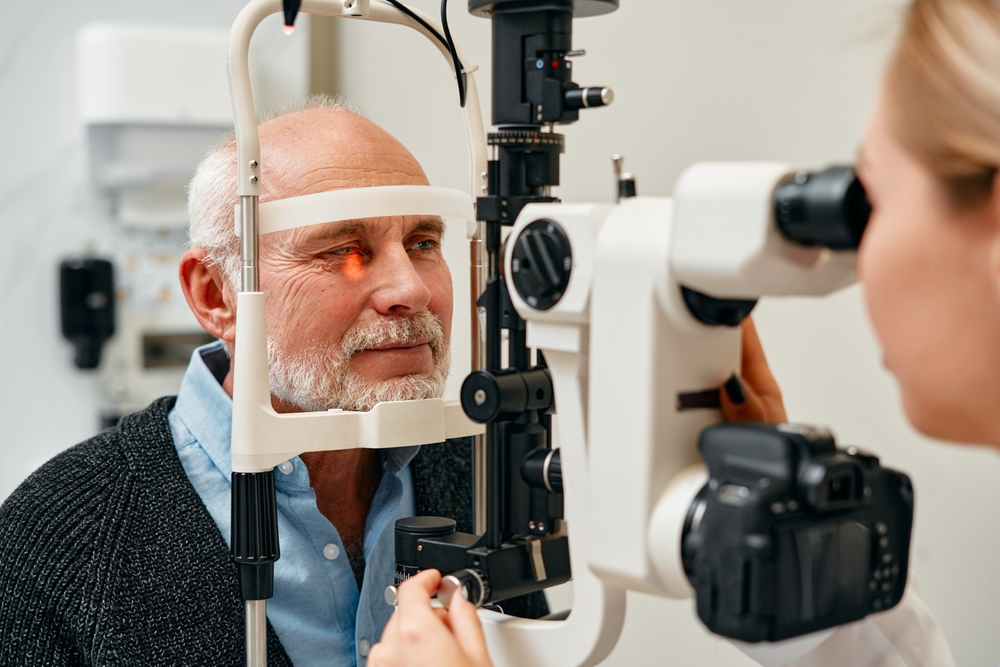
To have healthy eyes, you need to have eye exams scheduled regularly. Eye exams are necessary if you want to maintain healthy vision.
Not only can eye exams help your eye doctor diagnose vision problems caused by refractive errors, but they can also detect eye conditions. Age-related eye conditions are quite common, especially in older adults.
These eye conditions are also more challenging to diagnose, as they often only present symptoms once significant damage has already occurred to the eyes. How often you need an eye exam varies based on your vision, age, and risk for eye conditions.
But there are some guidelines you can follow. The key is asking your eye doctor for their recommendation, and they’ll be able to tell you exactly how often you should have eye exams. Keep reading to learn how often you need an eye exam to keep your eyes healthy!
The Dangers of Eye Conditions
Several eye conditions are common in older adults, including glaucoma, age-related macular degeneration (AMD), and diabetic retinopathy.
When left untreated, these age-related eye conditions can lead to significant vision loss and even blindness. However, they also don’t present any symptoms early on.
When they begin to present visual symptoms, any lost vision is gone, as damage is permanent and irreversible. Although none of these conditions are curable, most are manageable.
However, how manageable they are depends entirely on how early they’re diagnosed. Early treatment can slow down the progression of these eye conditions and may be able to prevent vision loss.
However, the only way to get an early diagnosis is through regularly scheduled eye exams with your ophthalmologist, as that’s the only way to detect these eye conditions before there are any symptoms and potential vision loss.
The Importance of Eye Exams

While these common eye conditions don’t present noticeable symptoms in the early stages, clear signs can be picked up during an eye exam by your eye doctor. When your eye doctor examines your eyes, they do more than look at visual acuity.
They also examine the inside of your eye. This is usually done by dilating your pupils so you can see through them. Special imaging equipment may also be used to take more detailed pictures of the inside of your eye.
When looking inside your eye, your eye doctor primarily examines your retina and optic nerve. Damage is usually most severe in these areas, and early signs of eye conditions can be seen.
Your eye doctor can see this damage well before you ever experience vision loss, allowing your ophthalmologist at St. Luke’s at The Villages to diagnose you and start treatment to prevent vision loss, possibly saving your vision.
However, the only way to have these eye conditions diagnosed early is by seeing your eye doctor regularly. It’s not enough to have an eye exam when you experience symptoms.
It may be too late to prevent significant vision loss by that time. Even if your eyes and vision seem perfectly healthy, you should have eye exams scheduled regularly.
However, what qualifies as regular depends on a few things, including these recommendations:
Recommended Frequency of Eye Exams Based on Vision

If you have a refractive error, whether it’s nearsightedness, farsightedness, or astigmatism, you should have an eye exam once a year. Annual eye exams if you have a refractive error will ensure you can keep your prescription up-to-date.
Your vision tends to change over the years, making it essential to have glasses or contact lenses that fully correct your vision. Out-of-date visual aids can lead to unnecessary eye strain.
Having refractive errors also increases your risk of developing eye conditions, so your eye doctor will also look for potential signs of eye conditions. If you’re under 40, you’re much less likely to have an age-related eye condition.
However, once you turn 40 or older, your risk of developing these eye conditions increases significantly. That’s why it’s a good idea to see your ophthalmologist annually for an eye exam.
Recommended Frequency of Eye Exams Based on Your Age
Regularly scheduling eye exams with your ophthalmologist is essential for keeping your eyes healthy and detecting any potential issues with your vision early on, even if you don’t wear glasses or contacts or have any apparent problems with your vision. However, the frequency of when to have your eye exams depends on your age and health.
According to the AAO, children should have their first comprehensive eye exam between 6 and 12 months of age, followed by another exam between 3 and 5 years old, and then yearly through childhood and adolescence. This is because vision changes can occur rapidly during these developmental years, and early detection of eye conditions is crucial.
For adults, the AAO recommends the following schedule:
- If you’re 20 to 39 years old, have a comprehensive eye exam every 2 to 4 years
- If you’re 40 to 54, have a comprehensive eye exam every 2 to 3 years
- If you’re 55 to 64, have a comprehensive eye exam every 1 to 3 years
- If you’re 65 or older, have a comprehensive eye exam every 1 to 2 years
It’s important to note that these are general guidelines. Your eye doctor may recommend more frequent exams based on risk factors, such as a family history of eye conditions, diabetes, hypertension, or other health concerns.
If you experience any changes in your vision or have concerns about the health of your eyes, schedule an appointment with your eye doctor as soon as possible.
Risk Factors for Developing Eye Conditions
Many things can increase your risk for eye conditions, including:

- Diabetes
- Tobacco use
- Heart disease
- High blood pressure
- A high refractive error
- Family history of eye conditions
You may need eye exams more frequently if you exhibit any of these risk factors. Talk to your eye doctor, and they’ll be able to tell you just how often you need to see them for eye exams scheduled regularly.
These guidelines are a good place to start, especially if you haven’t been seeing your eye doctor for eye exams. Remember that regularly scheduled eye exams can save your vision!
Are you ready to prioritize your eyes? To learn more, start by Scheduling your appointment at St. Luke’s at The Villages in Lake Sumter Landing, FL.









